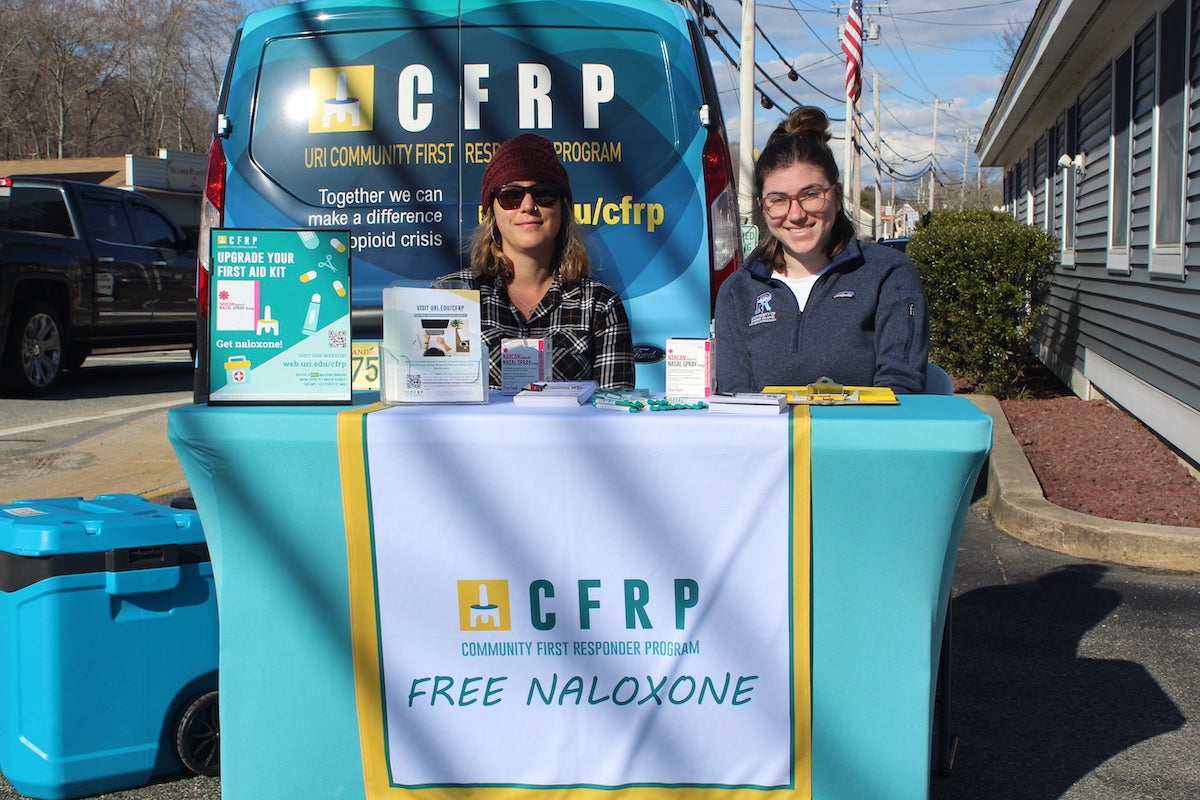$1.3 million award will fund distribution of thousands of life-saving naloxone kits, community overdose reversal training
The University of Rhode Island College of Pharmacy’s Community First Responder Program (CFRP) has distributed thousands of life-saving Naloxone kits over the last three years while educating members of the community to reverse opioid overdoses. The program has now expanded to become the Northeast Rural Opioid Technical Assistance Regional Center for overdose response training across rural New England, thanks to a new $1.3 million federal grant.
The grant from the Substance Abuse and Mental Health Services Administration, a division of the U.S. Department of Health and Human Services, allows the CFRP to expand into a regional hub, adding five institutions around New England, according to Clinical Professor Anita Jacobson, director of the program. Husson University School of Pharmacy, University of Maine Cooperative Extension, University of New Hampshire Cooperative Extension, University of Vermont Cooperative Extension and Western New England University School of Pharmacy will join URI in training members of the public to recognize an opioid overdose and use Narcan to stop one.
“This takes the model we’ve built in Rhode Island and helps the other schools implement the plan in their areas,” Jacobson said. “We’ve trained thousands of people in Rhode Island and we plan to now extend the program in rural areas throughout New England. There are a lot of people who have been touched by the opioid epidemic.”
For the past three years, the CFRP has provided free naloxone and educational training seminars throughout Rhode Island, garnering more than $4 million in grants to support the program. Trainees of the program receive a free naloxone (Narcan) nasal spray kit — the medication to reverse an opioid overdose — and may request fentanyl test strips to help detect the lethal synthetic opioid.
“Understanding how to recognize an overdose, and having these resources can help save lives when seconds are crucial,” Jacobson said. “Anyone who knows someone taking opioids for any reason, or using unregulated substances, such as stimulants, can be trained to recognize and respond to an overdose.”
Through online training seminars, and more in-depth, in-person seminars mostly for health care professionals and first responders, the program has trained more than 4,000 members of the community to help save the life of someone experiencing an overdose. CFRP is now a licensed wholesale distributor of naloxone, and has distributed 26,000 naloxone kits in 2022 alone to local non-profit partners for distribution in the community.
Everyone is welcome to complete an interactive 10-minute online module to become a community first responder. The course includes the option to request a free naloxone kit by mail, which comes with two doses of naloxone nasal spray that can be dispensed directly into the nostrils of someone who is experiencing an overdose. For more information or to become a first responder, visit web.uri.edu/cfrp.

